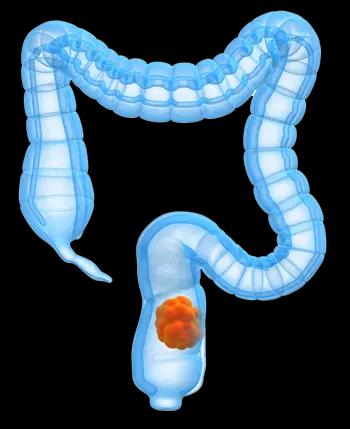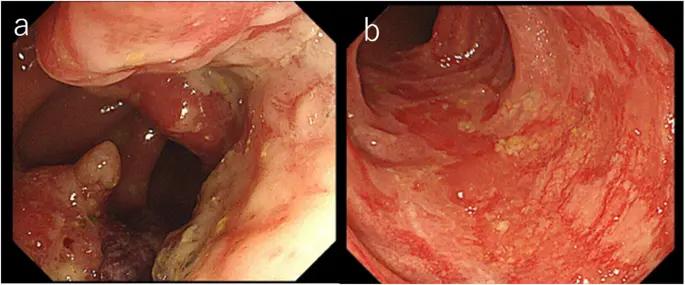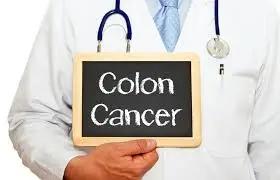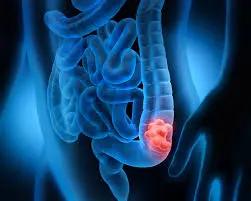Colorectal cancer, also known as colon or bowel cancer, is a prevalent type of cancer that affects the large intestine, including the colon and rectum. While early-stage colorectal cancers can often be treated successfully, stage 3 colorectal cancer presents a more complex and challenging situation. This guide will delve into the details of stage 3 colorectal cancer, exploring its characteristics, treatment options, and the factors that influence survival rates.
Understanding Stage 3 Colorectal Cancer
TNM staging system
The primary method for colorectal cancer staging is the TNM system (Tumor, Node, Metastasis) system, which comprehensively assesses the cancer’s progression.
Stage 3 colorectal cancer is a classification that indicates cancer spreads beyond the inner lining of the colon or rectum and into the surrounding lymph nodes. This stage is further divided into three sub-stages, known as IIIA, IIIB, and IIIC, based on the extent of lymph node involvement and the depth of tumour invasion.
Stage IIIA Colorectal Cancer
In stage IIIA colorectal cancer, the tumour has penetrated the first or second layers of the colon or rectal wall and has spread to one to four nearby lymph nodes.
Stage IIIB Colorectal Cancer
Stage IIIB colorectal cancer is characterised by a tumour that has invaded deeper into the colon or rectal wall, potentially reaching the outer layers or even perforating the wall. The cancer may have spread to one to three lymph nodes or, in some cases, to four or more lymph nodes.
Stage IIIC Colorectal Cancer
The most advanced stage of stage 3 colorectal cancer is stage IIIC, where the tumour has reached the outer layer of the colon or rectal wall and has spread to four or more nearby lymph nodes. Alternatively, the cancer may have spread to a nearby organ or structure.
Causes and risk factors
The development of stage 3 colorectal cancer, like other stages of the disease, is often linked to a combination of genetic, environmental, and lifestyle factors. Some of the key risk factors include:
Genetic factors
- Inherited genetic mutations, such as those associated with conditions like Lynch syndrome and familial adenomatous polyposis (FAP), can increase the risk of developing colorectal cancer
- A family history of colorectal cancer, especially in close relatives, can elevate an individual’s risk
Environmental and lifestyle factors
- Diets high in red and processed meats, as well as low in fruits and vegetables, have been linked to an increased risk of colorectal cancer
- Obesity, physical inactivity, and excessive alcohol consumption are also associated with a higher risk of developing the disease
- Smoking has been shown to increase the risk of colorectal cancer, as well as the likelihood of the cancer progressing to more advanced stages
Symptoms and diagnosis
Stage 3 colorectal cancer may not always present with obvious symptoms, especially in its early stages. However, some common signs and symptoms include:
- Rectal bleeding or blood in the stool
- Changes in bowel habits, such as persistent constipation or diarrhoea
- Abdominal pain or discomfort
- Unexplained weight loss
- Fatigue and anaemia
If these symptoms are present, healthcare providers will typically recommend various diagnostic tests to confirm the presence and stage of colorectal cancer. These may include:
- Colonoscopy
- Imaging tests, such as CT scans, MRI, or PET scans
- Biopsy to analyse the tumour cells
Colon cancer treatment
The treatment of stage 3 colorectal cancer often involves a varied approach, combining treatments to achieve the best possible outcomes. The specific treatment plan will depend on the individual’s overall health, the characteristics of the tumour, and the extent of lymph node involvement.
Surgery
Surgery is a cornerstone of stage 3 colorectal cancer treatment. Depending on the location and size of the tumour, healthcare providers may recommend:
- Partial colectomy: Removal of the affected portion of the colon, with reconnection of the remaining healthy segments
- Total colectomy: Removal of the entire colon, with the creation of a permanent colostomy
- Rectal resection: Removal of the affected portion of the rectum, with or without the creation of a temporary or permanent colostomy
Adjuvant therapy
In addition to surgery, adjuvant therapies are often used to enhance the effectiveness of treatment and reduce the risk of cancer recurrence. These may include:
- Chemotherapy: The use of anti-cancer drugs to target and destroy cancer cells
- Radiation therapy: The use of high-energy radiation to kill cancer cells and shrink tumours
- Targeted therapies: Medications that target specific genetic or molecular changes in cancer cells
Neoadjuvant therapy
In some cases, healthcare providers may recommend neoadjuvant therapy, which involves administering treatments before surgery. This approach can help shrink the tumour, making it more manageable to remove during the surgical procedure.
Factors influencing survival rates
The prognosis for individuals with stage 3 colorectal cancer can vary depending on several factors, including:
Cancer stage and lymph node involvement
The specific stage of the cancer, as well as the extent of lymph node involvement, are crucial determinants of survival rates. Generally, the more advanced the stage and the greater the lymph node involvement, the lower the survival rates.
Tumour characteristics
The type and grade of the cancer cells can also impact survival. Certain genetic and molecular features of the tumour may influence the response to treatment and the overall prognosis.
Overall health and fitness
An individual’s overall health, including their age, underlying medical conditions, and physical fitness, can play a significant role in their ability to tolerate and respond to treatment, ultimately affecting their survival.
Treatment approach and response
The specific treatment plan, the patient’s response to therapy, and the ability to complete the full course of treatment can all influence survival outcomes.
Survival rates for Stage 3 colorectal cancer
According to the available data, the 5-year survival rates for stage 3 colorectal cancer are as follows:
- Stage IIIA: Approximately 65% of individuals with stage IIIA colorectal cancer survive for 5 years or more after their diagnosis
- Stage IIIB: The 5-year survival rate for stage IIIB colorectal cancer is around 60%
- Stage IIIC: For stage IIIC colorectal cancer, the 5-year survival rate is approximately 40%
It’s important to note that these statistics are based on large groups of people and may not accurately reflect an individual’s specific prognosis. Factors such as the patient’s overall health, the response to treatment, and the availability of new and emerging treatments can all influence the actual survival outcomes.
Coping and support
Receiving a stage 3 colorectal cancer diagnosis can be overwhelming, both physically and emotionally. Individuals and their loved ones need to seek support and resources to navigate this challenging journey.
Emotional support
Connecting with support groups, counsellors, or mental health professionals can help individuals cope with the emotional and psychological impact of the diagnosis and treatment. These resources can provide a safe space to share experiences, receive guidance, and develop coping strategies.
Physical support
Patients may require assistance with daily activities, transportation to and from medical appointments, and managing the physical side effects of treatment. Family, friends, and community organisations can offer practical support to help ease the burden during this time.
Lifestyle adjustments
Adopting healthy lifestyle habits, such as a balanced diet, regular exercise, and stress management techniques, can contribute to overall well-being and potentially improve treatment outcomes.
Future outlook
The field of colorectal cancer research and treatment is constantly evolving, with ongoing efforts to improve outcomes for individuals with stage 3 disease. Some of the advancements and areas of focus include:
Precision medicine
Targeted therapies and immunotherapies are becoming increasingly integrated into the treatment of colorectal cancer, allowing for more personalised and effective approaches based on the unique genetic and molecular characteristics of the tumour.
Early detection and screening
Improved screening methods and increased awareness of the importance of regular colorectal cancer screenings can lead to earlier detection, potentially catching the disease at earlier, more treatable stages.
Multidisciplinary care
The collaboration of healthcare professionals from various specialities, such as oncologists, surgeons, radiologists, and palliative care providers, can enhance the coordination and delivery of comprehensive care for individuals with stage 3 colorectal cancer.
Ongoing clinical trials
Researchers are continuously exploring new treatment strategies, combination therapies, and innovative approaches to improve outcomes for patients with stage 3 colorectal cancer. Participation in clinical trials can provide access to emerging therapies and contribute to the advancement of cancer care.
Conclusion
Stage 3 colorectal cancer presents a complex and challenging scenario, but with advancements in medical research, treatment options, and a multidisciplinary approach to care, the outlook for individuals with this stage of the disease continues to improve. By understanding the characteristics of stage 3 colorectal cancer, the available treatment options, and the factors that influence survival, healthcare providers and patients can work together to navigate this journey and strive for the best possible outcomes.
Sources
- Colorectal Cancer Stages – Rectal Cancer Staging – Colon Cancer Staging – American Cancer Society
- Colon Cancer: Symptoms, Stages & Treatment
- Survival – Bowel cancer -Cancer Research UK
Medical Disclaimer
NowPatient has taken all reasonable steps to ensure that all material is factually accurate, complete, and current. However, the knowledge and experience of a qualified healthcare professional should always be sought after instead of using the information on this page. Before taking any drug, you should always speak to your doctor or another qualified healthcare provider.
The information provided here about medications is subject to change and is not meant to include all uses, precautions, warnings, directions, drug interactions, allergic reactions, or negative effects. The absence of warnings or other information for a particular medication does not imply that the medication or medication combination is appropriate for all patients or for all possible purposes.









